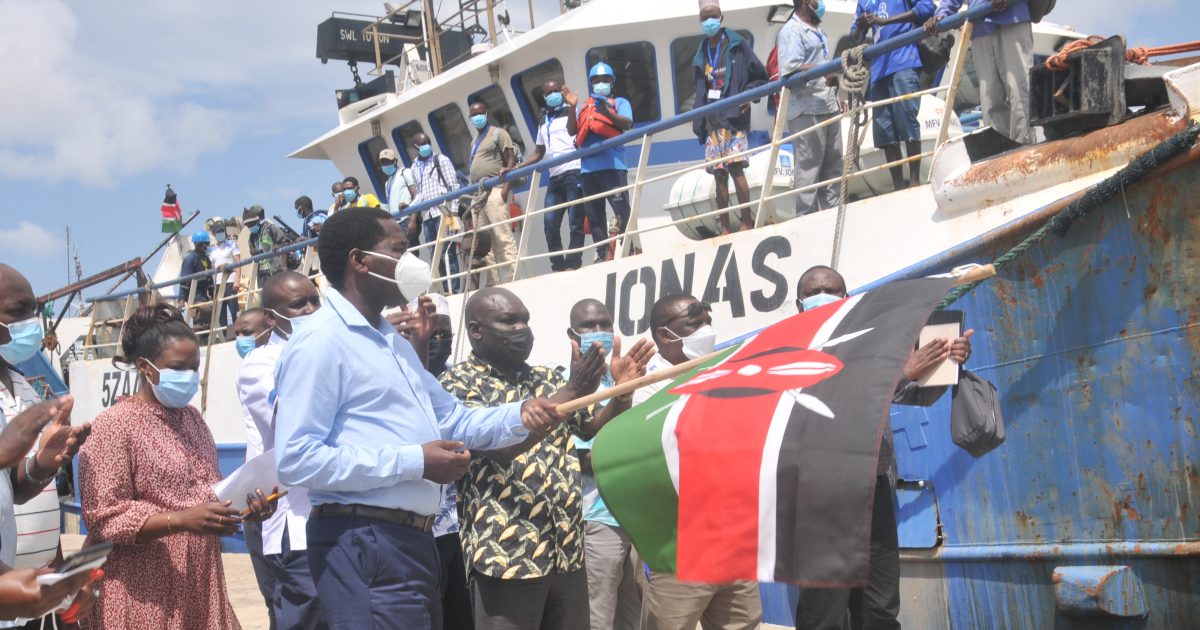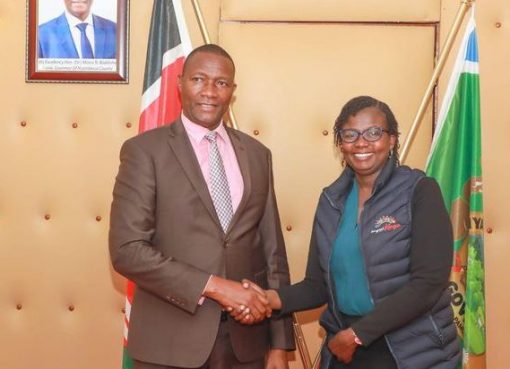Plans to pick a new tender for the construction of the fish landing site at the Liwatoni Fishing Complex in likoni sub-county, Mombasa are underway following the cancellation of the initial contract issued by the government.

Speaking at Liwatoni area on Wednesday morning when he flagged off a crew of 20 trainees aboard two vessels, the Cabinet Secretary for Agriculture Peter Munya said there were challenges with one of the sites forcing the government to cancel the contract.
Munya confirmed that the contract was re-tendered with the opening of the tender happening on Wednesday to pick the new contractor to complete the work.
“There was a challenge with one of the sites that is now being completed, a re-tendering of the contract was done and the new company to finish the work will be picked today,” said Munya.
He denied existence of unlicensed foreign fishing vessels in the country refuting claims from fishermen especially from Lamu and Kilifi who alleged that foreign trawlers were undertaking illegal fishing at the expense of Kenyan fishermen.
The CS said all vessels undertaking fishing activities had clearance from the government stating that he was not aware of any illegal fishing vessel in the country. “Those vessels that are here are all licensed to do fishing in our waters,” affirmed Munya.
The flagging of the two vessels FV Seamer II Longliner and FV Miss Jane Long liner is part of the government’s initiative to train youths from the six coastal counties in the fishing industry.
Munya stated that the government plan to train 1, 000 youth each year for the next five years with 400 expected to be trained by the end of this year.
“Today we have flagged off the first twenty youth who have completed their training at the Bandari College now heading to the deep sea for their practicals to equip them with the skills to work in shipping liners,” said Munya.
He noted that most of licensed fishing vessels’ workers were foreigners; a gap which the President directed should be filled when he commissioned the Kenya Marine Fisheries Socio Economic Development Project (KEMFSED).
By Chari Suche




